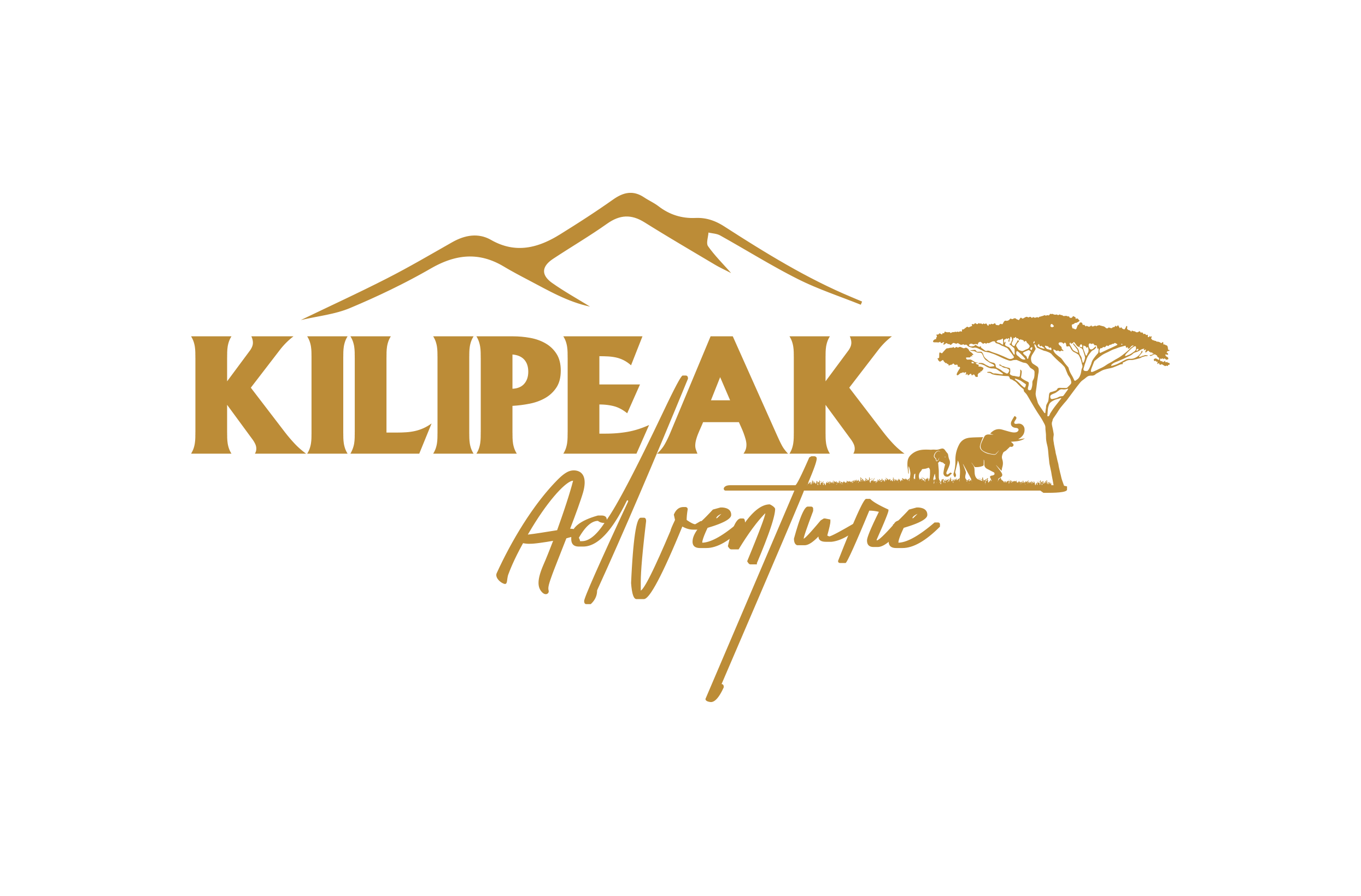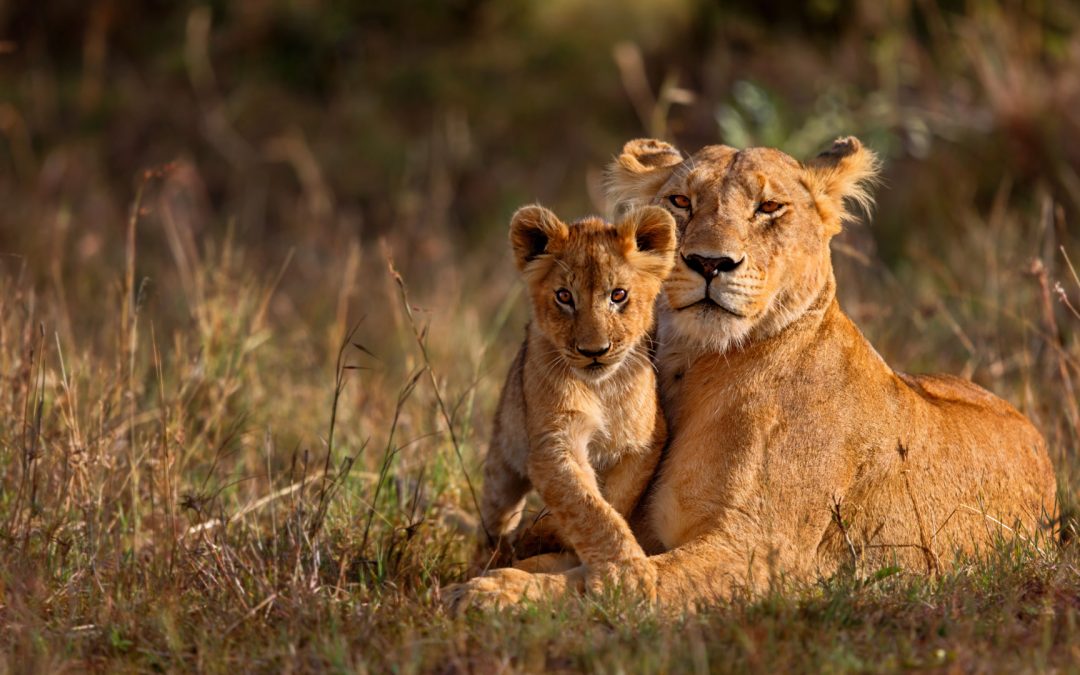
Mount Kilimanjaro Trekking Packages
This tour- 4 Days Tanzania Group Joining Safari Will reward you with amazing and breath-taking wildlife views.
Day 0: Arrival day
Please let us know if you will need transfer & accommodation in Arusha before & after the safari to be included in this tour so we can arrange for you. Our safari manager will meet you at your lodge/hotel in Arusha a day before or in the morning for a short safari briefing.
Day 1. Game Drive in Tarangire National Park.
Safari start from Arusha to Tarangire Park for game viewing, here you may see a large number of elephants, zebras, migrating wildebeest, baboons, baobab trees, buffalos, lions, leopards, cheetahs, antelopes, and different other wild animals, keep enjoying the game drive until sunset then drive to Kudu campsite for your dinner and overnight.
Day 2. Serengeti National Park.
Early Morning we will depart from kudu Campsite with packed lunch to Serengeti National park, via the Ngorongoro conservation area, in Serengeti you may also see the lions, cheetahs, leopards, elephants, wildebeest, crocodiles, hippos, buffalos, hyenas, antelopes, different species of birds, enjoying the game drive until sunset and later drive to Seronera campsite for your dinner and overnight.
Day 3. Serengeti National Park to Ngoro Ngoro Conservation Area
Start a day early for the Serengeti Sunrise game drive later you will drive back to the campsite for your brunch, and thereafter you will proceed with a game drive in this amazing national park before proceeding to Ngorongoro at Simba campsite allocated to the crater rim for your dinner and overnight.
Day 4. Ngorongoro Crater.
After early breakfast you will descend 610ms down to the crater floor, down the crater you may see black rhino, buffalos, elephants, lions, leopards, hyenas, cheetahs, flamingo birds alongside Lake Magadi, hippo pool, and different species of birds, keep enjoying the game drive down to crater until late afternoon after lunch in the crater, then start ascending up and back to Arusha for accommodation.
4 Days Tanzania Group Joining Safari includes:
• Private safari guide
• Private 4 x 4 safari jeep with pop up roof for game viewing
• Park fees/ Crater fees
• Camping equipment, Comfortable sleeping Tent with Mattress.
• All meals whilst on safari
• Cook
• On safari – Vehicles equipped with ice chest with mineral water, wildlife guidebooks.
• Government taxes.
4 Days Tanzania Group Joining Safari excludes:
• Tanzania Visa:
• Personal Expenses (e.g. laundry, telephone, beverages, etc.)
• Accommodation before and After the safari.
• Airport transfers
• Tips and any items of personal nature.
Mount Kilimanjaro Trekking Packages
Program Highlights
5 Days Tanzania Group Joining Safari is an affordable Tanzania camping tour suitable for Tanzania game viewing and camping safari. This adventure takes you to the most famous wildlife areas in Northern Tanzania national park such as Tarangire national park, Ngorongoro Crater, Serengeti national park, and Lake Manyara national park.
Itinerary: 5 Days Tanzania Group Joining Safari
Major Attractions:
- Best safari to see the big five
- The elephant in Tarangire national park
- Be able to see a huge group of flamingoes in Ngorongoro
- Five safaris including Elephants, Lions, leopards, Rhinos, and Buffaloes ( depending on luck)
- Spots of Wildebeest Migration in Serengeti.
- Tree climbing Lion in Lake Manyara
- The large number of birds found in Lake Manyara National Parks differs based on one habitat to another
Day 0: Arrival day
Please let us know if you will need transfer & accommodation in Arusha before & after the safari to be included in this tour so Kilipeak Adventure we can arrange for you. Our safari manager will meet you at your lodge/hotel in Arusha a day before or in the morning for a short safari briefing.
Leave early morning from Arusha or Moshi after breakfast, land depart to Tarangire National park for a full-day game drive. You will reach the main gate and after registration, you will depart into the park for a game safari drive, Luch to be saved in one of the picnic sites, later evening will drive to the campsite, Dinner, and Overnight at Migombani Campsite or Similar
Day 2: Serengeti national park.
Early morning depart to Serengeti National Park. The route we travel happens to pass the crater rim of Ngorongoro crater – there is a small prospect of spotting some game. The Serengeti is currently categorized as one of the seven natural wonders of Africa. We will stop for an enticing picnic lunch on a kopje (rock outcropping). After lunch, your game drive will venture further into the Serengeti to complete the tour for the day. The Serengeti Camp will ensure that you are provided with comprehensive camping facilities. Dinner and overnight at Serengeti Campsite:
Day 3: Ngorongoro Conservation Area.
We will begin our day with an early morning game drive in central Serengeti after lunch we will depart to the Ngorongoro Conservation area. We will stopover at Olduvai Gorge, boasting a history dating back to the dawn of time. It was here, that the anthropologist Drs. Lois and Mary Leakey discovered the skulls of ‘Nutcracker Man’ and ‘Handy Man’, both very significant links in the chain of human evolution Late afternoon transfer to Simba Campsite where you will have dinner and overnight
Day 4: Ngorongoro Crater.
After early breakfast, we depart for Ngorongoro Crater passing through the forested slopes of the Ngorongoro Crater Highlands before arriving at the rim of the crater…We’ll descend into the crater which is one of the most densely crowded game areas in the world, home to nearly 40,000 animals…Here we’ll have a good chance of seeing the big five: lion, leopard, rare Black Rhino, buffalo and elephants…Along with the big five animals; we will also see herds of wildebeest, zebra, and Thomson’s gazelle…After a picnic lunch, we’ll continue our game drive then depart the crater and arrive at our accommodations just at Lake Manyara national park gate at Migombani Campsite for dinner and overnight.
Day 5. Lake Manyara National Park
Nestled at the base of the Great Rift Valley escarpment, Lake Manyara National Park provides a picturesque, varying scenery. We will have a picnic lunch in the beautiful park, Encompassing this area is Lake Manyara Park which is often overlooked, but game-rich and best known for its tree-climbing lions…We’ll have time for a full-day game drive then an evening drive back to Arusha for accommodation.
5 Days Tanzania Group Joining Safari includes:
- Highly experienced safari guide/driver
- A very high-quality 4WD safari vehicle with a pop-up roof
- Park fees/ Crater fees
- Camping equipment, Comfortable sleeping Tent with Mattress.
- Tree meals a day whilst on safari
- Food, Cook, and all kitchen utensils
- On safari – Vehicles equipped with ice chest with mineral water 1.5lt per person per day, wildlife guidebooks.
- Government taxes.
5 Days Tanzania Group Joining Safari excludes:
- Tanzania Visa:
- Personal Expenses (e.g. laundry, telephone, beverages, etc.)
- Meals not listed above
- A sleeping bag that you can rent from our office
- Tips and any items of personal nature.
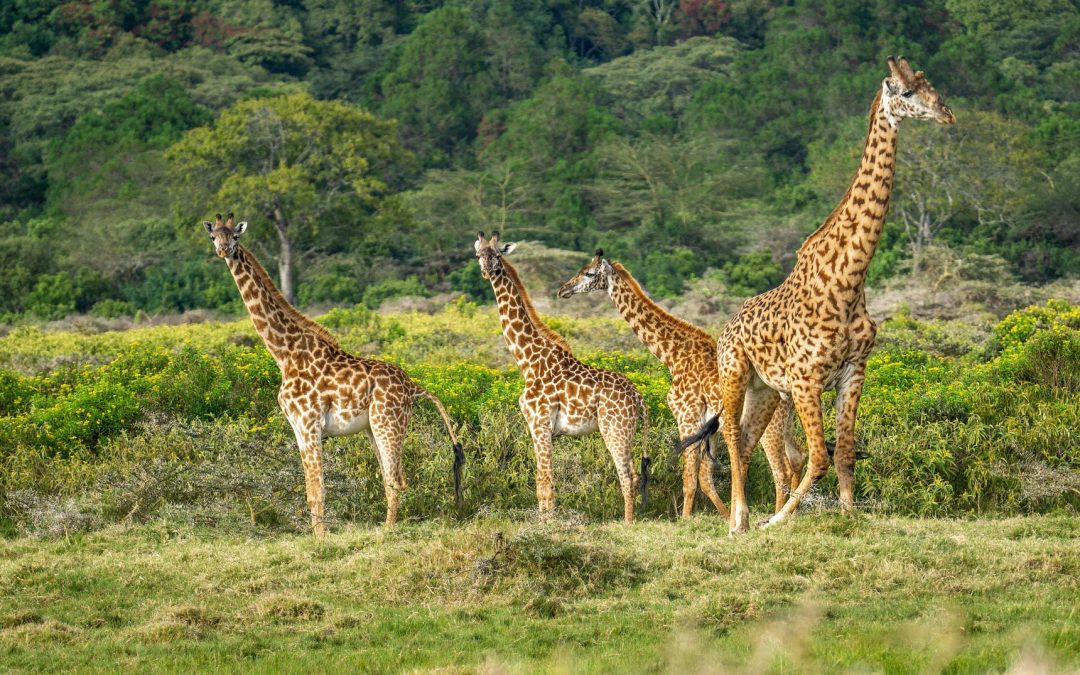
Mount Kilimanjaro Trekking Packages
Program Highlights
2 Days Tanzania Group Joining Safari take you to the most celebrated UNESCO world heritage area in Tanzania; the Ngorongoro Crater as well as Tarangire National Park a world-famous safari park for its unusual herds of elephants.
The Tarangire national park and Ngorongoro Crater are not very far from each other and with a range of accommodations having set up at Karatu (just outside the Ngorongoro Conservation), you can do a very rewarding safari in Tanzania in just 2 days and one night stay at one of the many campsites found around Karatu area or Lake Manyara areas which are actually midway between the two wildlife areas.
Itinerary: 2 Days Tanzania Group Joining Safari
Destinations: Tarangire and Ngorongoro Crater
Tour Guides Language:
- English
- For other languages please send a special request prior to your safari -an additional fee may apply.
Itinerary Description.
Day 0: Arrival day
Please let us know if you will need transfer & accommodation in Arusha before & after the safari to be included in this tour so we can arrange for you. Our safari manager will meet you at your lodge/hotel in Arusha a day before or in the morning for a short safari briefing.
Day 1: Tarangire National Park
Depart early after breakfast from Arusha you will drive across a beautiful and scenic Masai Steppe to Makuyuni junction and take left along the Arusha – towards Tarangire National Park. Arrive at the park’s gate at Tarangire and after your driver has sorted out the paperwork you start game drives almost straight away from the gate in a bid to see as many animals and birds a possible. Your professional safari guide will take you to the best wildlife-spotting areas of the park including the Tarangire River which is a permanent river that works as a bloodline for the park ensuring animals flock the river banks in search of water throughout the year. You expect to see elephants, elands, wildebeests, buffaloes, zebras, gerenuks, giraffes, and a lot of birds. Lunch will be taken at one of the picnic sites. Later in the afternoon, you will drive out of the park and your guide will take you to Karatu in the Ngorongoro Highlands for dinner and overnight at Campsite. Overnight at Migombani Campsite or similar Campsite.
Day 2: Ngorongoro Crater
After breakfast, your 2 days Tanzania Camping safari will continue as we take you to the Ngorongoro crater. You will start by driving to the gate for check-in and afterward drive up to the crater rim, stop for some nice view & pictures at the Crater viewpoint before ascending 600 meters steep to the crater floor for a wonderful game viewing. The unfolded caldera is sometimes referred to as the 8th wonder of the world & it is home to a larger number of animal species. Yearly adequate water supply & fodders in the crater supports a large number of wildlife which include herds of wildebeest, buffalo, African elephant, zebra, eland, hippos, gazelle & the rare black rhino.
Ngorongoro Crater is also home to a dense population of predators like lions, leopards, cheetahs, hyenas, and jackals, birds are abundant from some flocks of flamingos at Lake Magadi, pelicans, Ibises, ostrich, goose & other county birds. Packed lunch will be served on the crater floor. Late afternoon drives out & back to Arusha where your safari ends.
End of the safari.
2 Days Tanzania Group Joining Safari Includes:
•Professional, English speaking guide and safari
• Transport (4×4 Land Cruiser) with pop up roof for game viewing
• Park fees/ Crater fees
• Camping equipment, Comfortable sleeping Tent with Mattress.
• All meals whilst on safari
• Cook
• On safari – Vehicles equipped with ice chest with mineral water, wildlife guidebooks.
• Government taxes.
2 Days Tanzania Group Joining Safari Exclude:
• Tanzania Visa
• Personal Expenses (e.g. laundry, telephone, beverages, etc.)
• Sleeping bag you can rent from Our office
• Optional Tours Maasai Village)
• Tips and any items of personal nature.
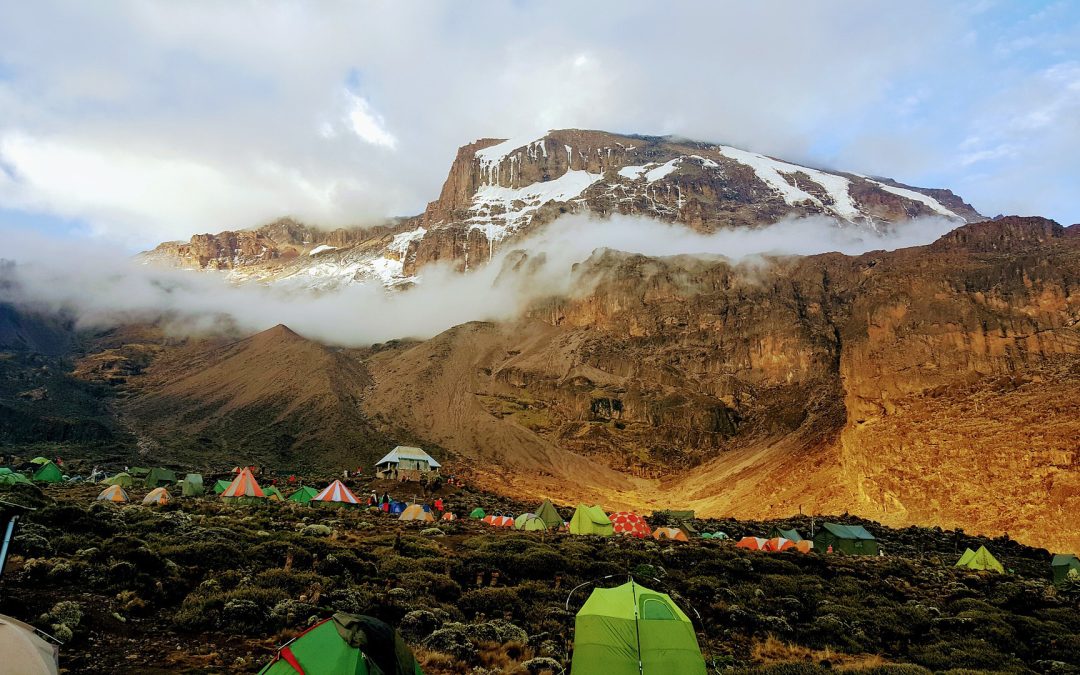
Mount Kilimanjaro Trekking Packages
7 Day Shira Route Group Join with Kilipeak Adventure, Very similar to the Lemosho route, however, it starts at 3,600 meters and is therefore not ideal for trekkers who have little or no experience of high altitude trekking. We trek across an alpine plateau and traverse the great Southern Ice field, before summiting from Barafu Hut.
Arrive In Tanzania
Arrive any time at Kilimanjaro International Airport (JRO) pick up by Kilipeak Adventure staff and drive to Arusha We stay at Kerama Silent Lodge, We will gather in the hotel for a pre-climb briefing and an equipment check. We will also confirm you have the appropriate mandatory medical coverage and travel insurance.
Dinner and overnight at Kerama Silent Lodge: Bed, and Breakfast-included.
Day 1: Shira One Camp.
After breakfast at the hotel in Arusha, we drive approximately 2 hours through the rural countryside to the Londrossi Gate. For the necessary park registration formalities at the Londorossi National Park gate, we drive a short distance on a steep track through farmland and plantations to the starting of Shira Route. We start our ascent along with the shrub forests the trail climbs steadily with wide views of Kibo Icefield to reach the rim of the Shira Plateau.
Londrossi Gate to Shira One Camp (3550 m): 4-5 hours walking.
Day 2: Shira Hut.
Today we follow an easy path to the summit of Shira Cathedral before reaching the next camp at Shira Hut. As this camp is quite exposed, it can be substantially colder than the previous night, with temperatures dropping to well below freezing.
Shira Camp One to Shira Hut (3,840 m): 4-5 hours walking.
Day 3: Barranco Valley Camp.
Today we walk on a gentle ascent and panoramic views. We traverse the southwest side of Kilimanjaro, passing underneath the Lava Tower and the final section of the Western Breach and after hot lunch the bottom of the Lava Tower (4,600 m.) we descend to the bottom of the Great Barranco valley (3,900 m.).
Moir Hut to Barranco valley (3,900 m.): 5-7 hours walking.
Day 4: Karanga Camp.
A steep climb up the eastern wall leads us just below the Heim Glacier, where we may have some spectacular views of Kilimanjaro. We then take a steep exit up the Great Barranco Wall, which divides us from the southeastern slopes of Kibo, the trail continues down into the alpine desert of the Karanga Valley, finally, we have a steep climb up to Karanga Camp
Barranco Valley to Karanga camp (4,000 m): 4-5 hours walking.
Day 5: Barafu Camp.
Today we take the Traverse Route that takes up the Barafu Ridge, we walk up quite slowly to the final camp before your last ascent day to the summit. The remainder of the day is spent relaxing in preparation for the final ascent before a very early night.
Karanga Camp to Barafu Camp (4,600 m): 3-4 hours walking.
Day 6: Summit – Mweka Camp.
Wake up before midnight in the cover of darkness. We begin a steep climb over loose volcanic scree has some well-graded zig-zags and a slow but steady pace will take us to the rim of the main crater, Stella Point, at 5,735m. We will rest there for a few minutes to enjoy the sunrise over Mawenzi. Those who are still feeling good can continue slowly to make the two-hour round trip from here along the crater rim to the main peak (5,895 m), which is the highest point in Africa. After a few minutes to appreciate your accomplishment we descend to Barafu is amazingly fast, and we stop at Barafu Camp for some refreshment, we continue to descend to reach Mweka Camp.
Barafu Camp to Summit to Mweka Camp (3100 m): 13-15 hours walking.
Day 7: Mweka Gate- Arusha Town.
A gentle walk takes us down through the rain forest to Mweka gate successful climbers will receive their summit certificates. After lunch, we drive back to Arusha for shower and celebration.
Mweka Camp to Mweka Gate: 3-5 hours walking.
Dinner and overnight at Kerama Silent Lodge: Bed, dinner, and Breakfast-included.
Departing Day
After saying bye to our team of guides then you need a private departure transfer which is included from Arusha to Kilimanjaro International Airport (JRO) for your flight unless you have an option to have a short safari or any other option we will discuss.
E-mail us at any time to discuss your trip and get an accurate quotation.
TREKKING KILIMANJARO FOR CHARITY CHALLENGE?
The above climb can be undertaken for your own personal charity or group charity.
Mount Kilimanjaro Climb – 7 Day Shira Route Group Join Includes:
• Tanzania VAT on tourism activities
• Airport transfers
• Accommodation night before and the night after the climb
• All Kilimanjaro National Park gate fees, camping fees, and climbing permits.
• Kilimanjaro National Park rescue fees
• Emergency oxygen
• Basic first aid kit
• Qualified mountain guide, assistant guides, porters, and cook
• Breakfast, lunch, and dinner
• Camping equipment (tents, camp chairs, tables & sleeping mattress
• Porter to carry your duffel bag (max weight 15kg / 32 lbs)
• Chemical portable toilet
Mount Kilimanjaro Climb – Shira Route – 7 Day Shira Route Group Join Excludes:
• Flights and airport taxes
• Items of a personal nature
• Compulsory tips for guides, porters, and cook (See tipping guideline)
• Highly recommended travel and medical insurance.
• Personal hiking/trekking gear – we can rent some of the gear from our equipment store in Tanzania
• Snacks, personal medicine, and water purifying tablets
Safety:
Success is what we want during our trip. We are prepared for any urgent situation and also have in place a complete evacuation procedure in case of altitude sickness. We carry first aid supplies, supplement summit oxygen, and Pulse Oximeters).
Travel insurance:
All customers traveling with Kilipeak Adventure are required to have fully comprehensive travel insurance. The policy needs to be valid from the date that the initial order is placed so as to provide cover for a cancellation prior to departure. During travel, the insurance needs to provide comprehensive medical, evacuation, and repatriation cover.
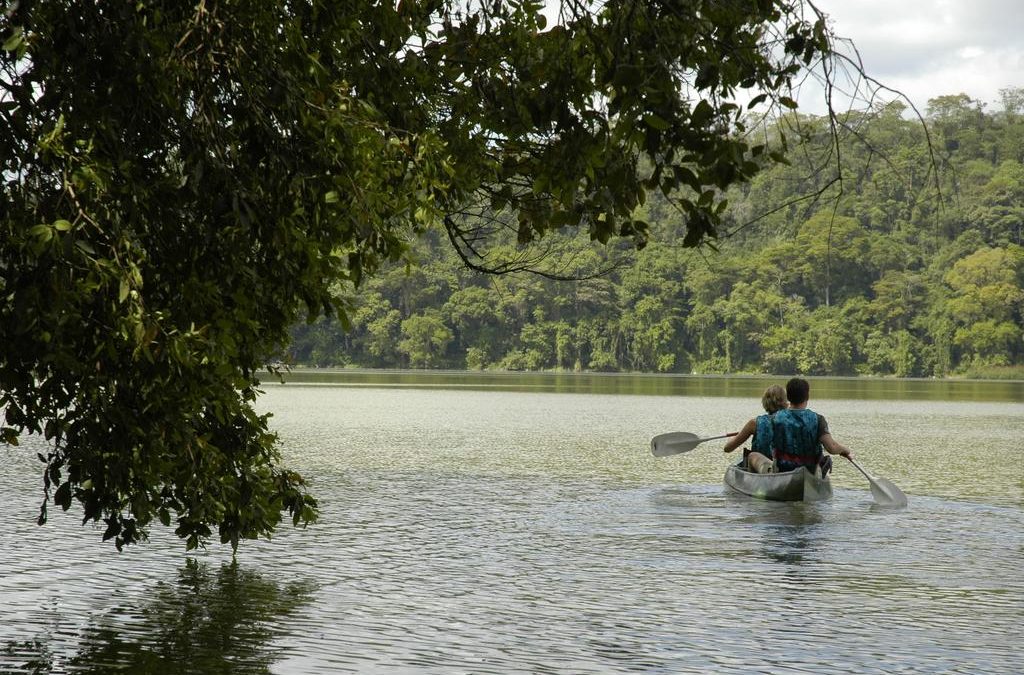
Day Trips
Tour Overview
Lake Duluti Canoeing and Nature Walk Tour, Lake Duluti is a volcanic crater lake in the Arusha region of Tanzania, on the eastern edge of the eastern branch of the Great Rift Valley. It is located in Meru District near the town of Tengeru and is 14 kilometres from Arusha city Centre and 1.31 kilometres from the Arusha-Moshi road.
It’s a sanctuary nature trail lake with the presence of more than 150 species of birds that you can have the best bird watch, some include Osprey, buzzards, kingfishers, eagles, storks, doves and barbets and more
The forest around Lake Duluti is also home to many reptiles such as different lizards and snakes, Bird watching, Nature walk or Canoeing is a popular activity in Lake Duluti.
Mount Meru and Mount Kilimanjaro are always awesome to view them from the Lake sides while doing Canoeing around the Lake Duluti Canoeing and Nature Walk.
Departure & Return Point
We can start / end this tour from any hotel in Moshi/Arusha or from Kilimanjaro International Airport (JRO).
Tour Itinerary
We departs from the hotel Moshi/ Arusha and transfer to Lake duluti, upon arrival to lake duluti we will board our canoe for a boat trip. Glide across the smooth surface of this small crater Lakes and view bird life seldom seen: fish eagles, giant kingfishers, darters and many more.
During your canoeing tour you will see wildlife in the overarching trees and breath-taken scenes of Mount Meru and Mount Kilimanjaro. The Lake goes as deep as 700 meters.
After the canoe trip, you’ll have a local lunch around the Lake, and partake another adventure tour in the same area. A day excursion to Lake Duluti is filled with many activities such as walking tour, hikes around a nearby crater and birds watching around Duluti forest reserve, Later afternoon drive back to Arusha/ Moshi or Kilimanjaro International Airport end of Lake Duluti Canoeing and Nature Walk
Lake Duluti Canoeing and Nature Walk Includes:
• Tanzania VAT on tourism activities and park fees
• Transfers from hotel to Lake Duluti and return
• Canoeing on Lake Duluti
• All Park gate fees,
• Professional English-speaking guide
• Local African Lunch and drinking during tour
Lake Duluti Canoeing and Nature Walk Excludes:
• Flights and airport taxes
• Items of a personal nature
• Compulsory tips for guides
• Visa
• Travel Insurance

